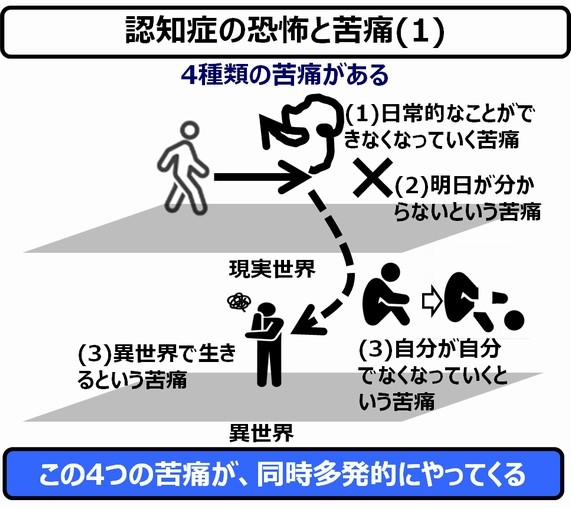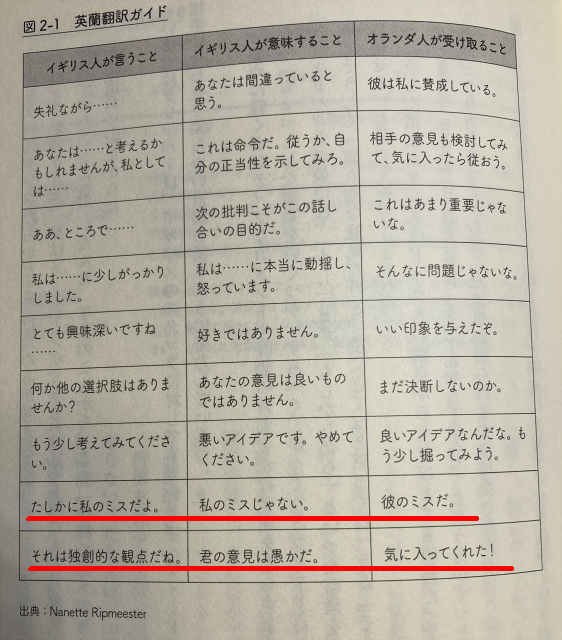以前、小学6年生の次女と、以下のような会話をしたことがあります。
The other day, I discussed the story with my junior daughter (The 6th grade).
―― 「永遠に生きる」、というのはどういうことか
"What does "to live eternally" mean?"
次女:「単に『ずっと死なない』ということだと思うけど」
Daughter:" I merely think that it is that we don't die all the time."
江端:「『ずっと記憶している』ということだと思うんだよね」
Ebata:" I think it means "to remember everything all the time."
次女:「?」
Daughter:"?"
江端:「記憶というのは、結局、脳のサイズで決定されるから、永遠に記録しておくことってできないんだよ」
Ebata: "The size of our brain decides our amount of memory, so we cannot continue to record what we are doing eternally."
次女:「で?」
Daughter: "And?"
江端:「例えば、最近の100年だけ覚えているとしたら、この人は『永遠に生きる』ということになるかな?」
Ebata: "For example, if we can live eternally and keep our memory only for 100 years, can we live eternally?"
次女:「つまり、100年間だけ生きている、と?」
Daughter: "We live only for 100 years, don't we?"
江端:「うん。それって、結局、100年の寿命の人生と大して変わらないと思うんだ」
Ebata: "All right. It thinks it does not make much of a difference from the life of the life of 100 years after all."
次女:「だけど、死の恐怖がないという人生は悪くないと思う」
Daughter: "But I think that life without fear of death is not bad."
江端:「とすると、『永遠に生きること』の価値は、死の恐怖がない、ということだけになるのかな」
Ebata: "Does the value of "living eternally" have a fear of death?"
-----
嫁さんや、娘たちに対して、時々私は、こういう哲学的アポリアを振ることがあります。
I sometimes broach the subject of such philosophical aporia for my wife and daughters.
ソクラテスの産婆術を気取っている訳ではなく、私が考えを整理する為に、彼等を利用しているだけのことです。
However, I don't pose as the maieutic method of Socrates; I arrange my thoughts by using them.
-----
私の父は、今、数分前の会話を覚えていることができません。
My father cannot remember the conversation from several minutes ago.
私が、父を、山や川に連れ出しても、そのことを夜まで覚えていることはできません。
Even if I take my father to a mountain and a river, he will not remember them until night.
それでも、日常生活には大きな支障はなく、傍から見ると普通の老人に見えます。
Still, his everyday life is not troubled and looks from the side like an ordinary old man's life.
コンロの火をつけっぱなしにすることがあったので、あわてて、電磁調理器具に交換する、ということはしましたが。
When he kept setting the cooker on fire, my sister and I quickly changed it to an electromagnetic kitchen utensil.
-----
昨日の私の考えに因れば、
According to my thoughts of yesterday's diary, the conclusion is
―― 覚えていないことは、生きていないこと
"What we do not remember is what we do not live."
ということになります。
それなら、父は、その人生を「数分間だけ生きている」ことになる。
Then, it is correct. My father lives in his life only for several minutes.
でも、私が帰省する度に、父は、『おお、帰っていたのか』と応えます。
However, whenever I returned to his house, he said, "You are home, aren't you?"
私自身の情報を持っていることにおいて、父は「生きている」ことになります。
As far as I know, he lives now.
でも、いずれ、「私」を認識できなくなる日がくるかもしれない。
However, the day that he could not recognize me might come.
それでも、暫くの間、父は、眠り、飯を食べる日々を続けることになるでしょう。
He could keep sleeping, having for his daily life.
そして、この時、父は生きている、と言えるのだろうか。
I ask myself.
Could I say "father lives" then?
そんなことを、ボンヤリ考えることが多くなりました。
I came to often think about such a thing darkly.
-----
このような、短期で記憶を失くしていく物語として、私が読んだものでは、小川洋子さんの、
There are several books whose story has a theme of losing memory for short term as follows.
「博士の愛した数式」
「掟上今日子の備忘録」
古くでは、故ダニエルキイスさんの
「アルジャーノンに花束を」
"Flowers for Algernon" by the late Mr.Daniel Keyes
など、色々あります。
どれも、素晴しい本で、お勧めできます。
The above books are wonderful, and I can recommend them.
-----
しかし、これらの本を読んだところで、所詮は物語の話です、
However, the books are books, even if I read many of the same kinds of books.
もし自分が、数分前の会話の内容が消えていく日常にあったら、どんな感じなんだろう、と思うことがあります。
How would I feel about daily life if I had to live a life that forced me to eliminate my memory after several minutes?
■家族は、同じ話を何度も繰返しているらしい自分に、うんざりした顔をしている → だから、何か言うのが怖くて、何も言わなくなる。
- My family looks tired of my repeated speaking, so I fear talking and will keep silent.
というように、日々の生活に対して萎縮してしまうかもしれません。
I will hesitate about any actions in my life like that.
そもそも、
Above all, I think.
■数分前の自分や他人の言動を忘れること自体が、相当な恐怖
- It should be a terrible fear to forget my actions and what others are saying in several minutes.
とも思えます。
そして、
And,
■その想いを、誰に伝えることもできず、また未来に残すこともできないという無念さとは、どのようなものか
- How sad that we cannot tell and leave our thoughts to others
That is unimaginable for me.
いずれにしても、自分の気持ちが、誰にも開けることのできないブラックボックスの中で静かに消えて行く ―― ということは、誰も避けられないことです。
Anyway, nobody could be inevitable that my thoughts come to fade away in a closed black box.
口に出せない介護問題の真実 ~「働き方改革」の問題点とは何なのかhttps://t.co/ZctSFZCWtR pic.twitter.com/kT9vlKOSkt
— EE Times Japan編集部 (@eetimes_jp) November 30, 2018
それが緩やかに続いていくか、あるいは突然起こることかの違いはあれ ―― いずれ、誰もが「死」というフェーズを迎えることで、私達は同じゴールに到着することになるからです。
Despite the differences between slowness and rapidness, we will arrive at the same goal: "death."
だから ―― 私は自分の考えを修正しなければならないのだろう、と思っています。
-----
So, now I think I have to modify my policy by myself.
どんなに膨大な音楽ファイルやビデオファイルを貯蔵していとしても、部屋の床が抜けるほどの蔵書を持っていたとしても、それ自体には価値がないことは、誰もが認めることでしょう。
Everybody can admit that even if we had enormous music and video files in storage, or even if we had a collection of books as a floor fell out, they are worthless.
いつでも自由に取り出せる記録コンテンツは、確かに便利ではあるけど、そのコンテンツを再生している瞬間の時間と空間には、遠く及ばないし、
Though the recorded content accessed freely anytime is convenient, it is far from the value of the momentary time and space where we play content.
その音楽を聞き、映像を見、そして本を読んでいる、その瞬間を生きている自分が、自分の過去の記憶ごときに劣るはずがありません。
We, who listen to music, watch videos, and read books, never lose our memories.
ならば、 ――
Therefore,
「忘却してしまう人生は、生きていることにならない」とか、「死に行く人生には、価値がない」ということには ―― ならない。
"The life that we forget is not our life" and "the life that leads to death is worthless" is nonsense.
例えば、
For example,
新緑に萌える山や、川面に揺れる光を、眩しそうに眺める父が、それを心地良いと思えるのであれば ―― 仮にそう思えなくとしても ―― その瞬間、父は父の人生を確かに生きているのであるし、
If my father, who seems to be dazzling mountains to sprout in the fresh green and light to shake in the surface of a river, could feel "good" or "not good", at the moment, he surely lives in the life of him.
父が帰宅した時に、そのことをすっかり忘れてしまったとしても、山や川で過した時間が、無価値になるという論理の方がおかしい。
Even if he forgets all the memories of the day at home, it should be wrong logic that the memories become worthless.
「そのことを、父が覚えていなくても、私が覚えているから」というような、妙な理屈を持ってくる必要すらもなく、
We don't have to lead the funny eggheads that "I could keep the memories if my father forget them".
父がその瞬間を生きていることそれ自体が、まさに「父が生きていること」であり、
My father's living itself is really "my father's living," and,
それは、だれの為でもなく、父自身にとってまさに人生に値する価値がある
It is worth deserving the life for not anyone but father oneself.
―― と、ようやく、私は思えるようになったのです。
(「アルジャーノンの花束を」のネタで、過去のログをまとめて編集しなおしました)
出展
https://www.kobore.net/diary/?date=20141108
https://www.kobore.net/diary/?date=20141109






